Body Recomposition Calculator
Discover the perfect calorie and macro amounts for body recomp with our customizable calculator.
What is body recomposition?
Body recomposition is the process of improving your body composition by increasing muscle mass and decreasing fat simultaneously.
Favorable body composition has many health benefits and improves athletic performance.
There is ample research-backed evidence showing it is entirely achievable. However, it requires a commitment to weight training and a nutrition plan.
How to do a body recomposition
Step 1: Enter your details into the calculator
If you know your body fat percentage (calculate here), choose Lean Mass Formula and input your percentage.
The lean mass method yields better results than weight and height alone.
Step 2: Choose your recomposition goal
- If you choose More Fat Loss, there will be less muscle gain.
- If you choose More Muscle Gain, there will be more muscle gain, but probably some fat gain.
- If you choose Even – it’s a compromise between the two.
Step 3: Take note of your calories and macros
The calculator will recommend your daily calorie and macro amounts. If you’re new to macros, you’ll need to get up to speed.
You will be told how much carb, protein, and fat you must eat daily. You can adjust this to show per meal to help you get an idea.
It’s best to eat more on workout days (the increased carbs fuel your workouts) and less on non-workout days. Protein remains relatively constant throughout – muscle recovery can happen anytime.
Step 4: Stick to a consistent workout routine.
Consistent workouts are not optional for body recomposition.
Your workouts must be resistance-based, not cardio-based. Do weight-bearing exercises rather than running or walking.
As a basis, we recommend this:
- Have three weight training sessions per week.
- Minimum of 30 minutes per session.
- Focus on compound movements.
For example, squats, deadlifts, pull-ups (or lat pull-downs) – rather than bicep curls, etc. - Rest only 30-60 seconds between sets (i.e., leave your phone at home).
- Three sets per exercise, 8-15 reps per set.
Step 5: Track your macros
For the maximum chance of success, you will want to track your macros.
This can be tricky.
If you’ve got the budget, use Factor Meals, which has consistent 500-550 calorie meals. These can form the basis of daily meals, and you can then add in protein shakes to meet the required calorie amount.
Step 6: Get enough sleep
It might seem odd, but let’s quote the research:
Sleep deprivation […] seems to create an “anti” body recomposition environment, where building muscle mass and losing FM [fat mass] would be less likely.
Step 7: Measure results
Rather than using basic scales, use an advanced scale system like Renpho. This gives far more precise body recomp metrics.
How long does it take to recompose your body?
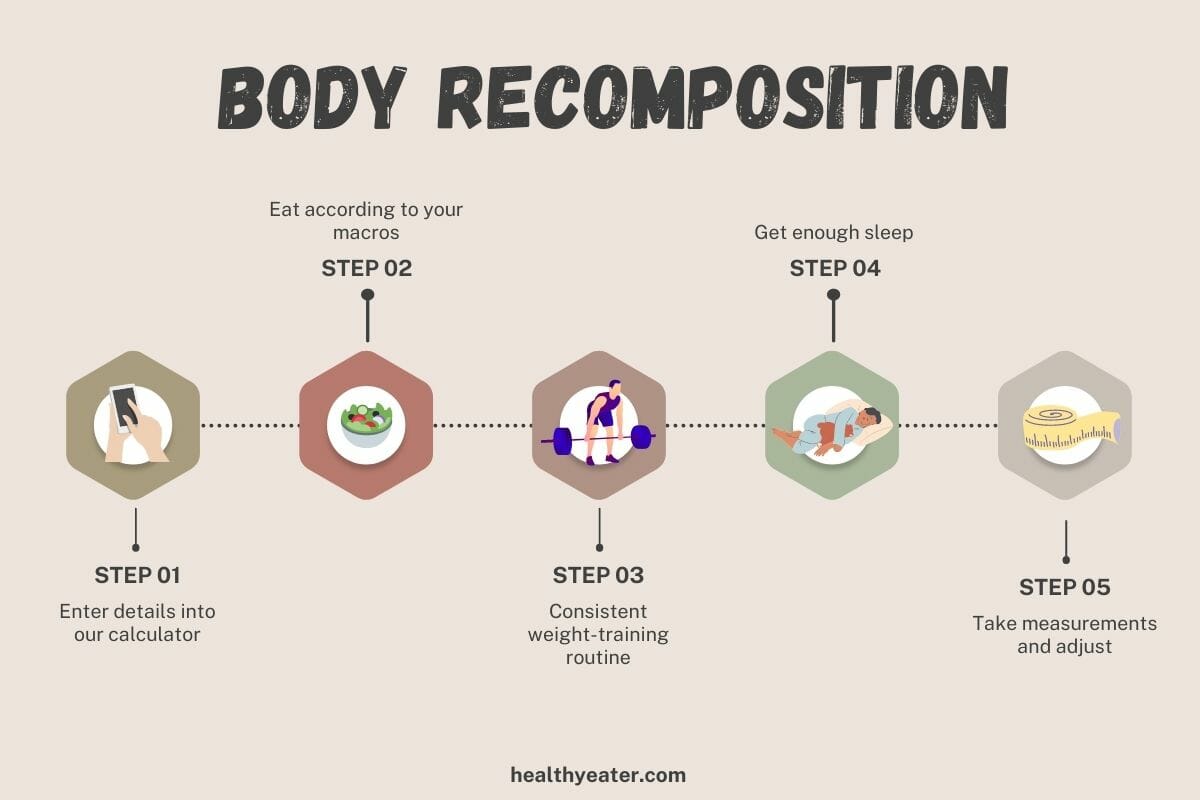
We recommend a minimum of 8 weeks.
Take measurements (fat skinfold tests, photos, etc.) weekly. You can weigh yourself – but that won’t tell you anything about your body composition.
Depending on your results, you will want to adjust your settings.
If you need help, Coach Ted has helped hundreds achieve their goals.
How much protein should I choose?
- The default option (high) is best.
- Maximum is only for those doing longer, more intense weight-lifting workouts.
- Plant-based protein is set lower: It’s challenging to meet the protein macro without carbs and fats getting too high. If you are vegetarian or vegan and okay with 1-2 protein shakes daily, use the default option.
If I do extra workouts, do I need to account for the calories?
You can account for the extra calories if you do over three weight training sessions a week.
- Track your extra calories over a week.
- Be conservative (i.e., don’t overestimate).
- Enter them into the “Additional Weekly Calories.”
The additional energy expenditure will be allocated to the overall weekly algorithm.
If you need help, use the calorie burn calculator. Remember you are looking for extra calories expended over a week.
How many calories should I eat a day for a body recomposition?
There is no one-size-fits-all here. Calories and macros for body recomposition are highly individualized.
Your biological sex, height, weight, and activity level will predict your daily energy expenditure. By making minor adjustments to this, you can begin the process of gaining muscle while losing fat mass.
The technical bits – how to calculate calories for body recomp
- Apply the Mifflin-St Jeor equation to calculate your basal metabolic rate.
- If you know your body fat percentage, use the Katch-Mcardle formula.
- Multiply BMR by 1.2 to get your maintenance calories.
- Adjust the calorie amount for training days based on the goal:
+20 % for more muscle gain and +10% for more fat loss. - Adjust calorie amount for rest days based on the goal:
-5% for more muscle gain, -15% for more fat loss. - Calculate protein amount
The default is 0.95 grams protein/lb (~2 g / kg) of body weight. Plant-based is 0.65 g/lb. - Calculate the fat amount.
Calculate fat at 30% of daily calories. - Calculate the carb amount.
All remaining calories are allocated to carbs.
Yes 🤓. That’s why we made a calculator.
Is this the same as the macro calculator?
No, there are many differences.
The standard macro calculator is aimed at people wanting to lose weight, and exercise is optional.
There are differences in both the calorie calculation step and the macro calculation step.
How much cardio for a body recomposition?
The traditional bodybuilding method involves a ‘bulk’ phase (lots of calories + heavy weights), followed by a ‘cutting’ phase (reduced calories + lots of cardio).
Body recomposition is a different process. Cardio alone (such as steady-state running or walking for 20 mins+) won’t increase muscle mass.
You should keep cardio to a minimum. However, it’s good for the heart and mental health, so don’t give up going for bike rides or walks if this is your thing.
It’s a good idea to account for the extra energy expenditure from cardio.
If you burn a lot of calories through cardio, you will not achieve the desired body recomp results. You are not doing a body recomposition!
Help! I’m not getting the desired results
- “I’m gaining some muscle but not losing fat“
Adjust calories down lower. - If your goal is Even, change it to More Fat Loss.
- Are you eating more on workout days? And less on non-workout days?
Sources
- Barakat, C., Pearson, J., Escalante, G., Campbell, B., & De Souza, E. O. (2020). Body recomposition: can trained individuals build muscle and lose fat at the same time?. Strength & Conditioning Journal, 42(5), 7-21. (full text)
- Ribeiro, A. S., Pereira, L. C., Schoenfeld, B. J., Nunes, J. P., Kassiano, W., Nabuco, H. C., ... & Cyrino, E. S. (2022). Moderate and Higher Protein Intakes Promote Superior Body Recomposition in Older Women Performing Resistance Training. Medicine and science in sports and exercise.Link
294 Comments


 Menopause Macro Calculator
Menopause Macro Calculator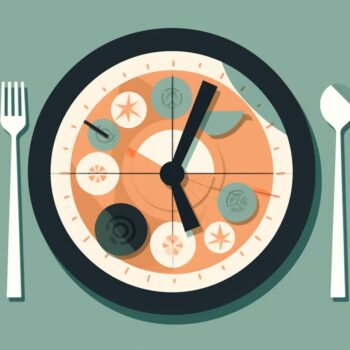 Intermittent Fasting Calculator
Intermittent Fasting Calculator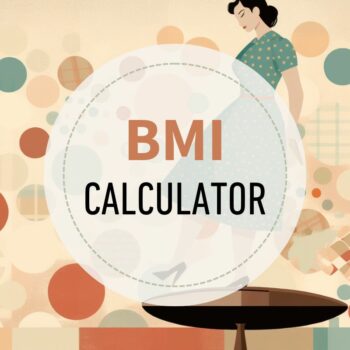 BMI Calculator
BMI Calculator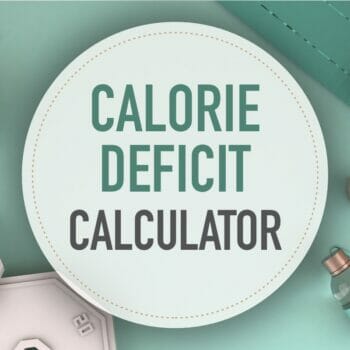 Calorie Deficit Calculator
Calorie Deficit Calculator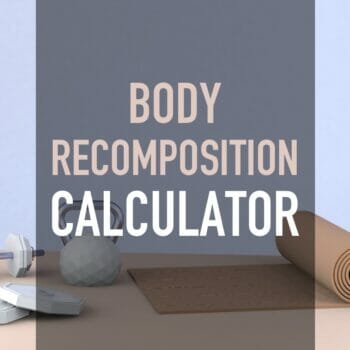 Body Recomposition Calculator
Body Recomposition Calculator
Hello! I’m a post menopausal 62 ye old woman. I have been restricted eating 19:5-23:1 for over 5yrs. I’m small boned 5’4” and now 123#. This is heavy for me. When I first started IF I got down to 110-115# which was perfect. Over the last 2yrs I have gradually gained to 123# Now nothing will break the plateau! Do you think counting macros will help me? I’m very frustrated. I don’t think I was getting enough protein while fasting because I was losing hair and now I have slightly elevated AST & ALT. Before I started I was also borderline insulin resistant. I am also hypothyroid and take Armour. I also had high cholesterol and take 5mg Crestor. Now my numbers are A1C 5.5, Total Cholesterol 192, Try 136, LDL 99, HDL 70, insulin 3.1 ALT 52, AST 53. Any ideas what might be going on?
Hi Mollie, It definitely seems like you should be eating more protein and perhaps more food in general. Hair falling out is a sign of malnutrition. Do you have any idea how many calories you are consuming? It may be a good idea to assess that by tracking and then go from there.
Hi Ted!
Glad I found your page. I’ve never really been overweight (I’m 5’1″, 111 lbs) — because I’m a shorter person, I am really careful about weight gain. Every lb makes a difference in how I look and feel. Plus I have a herniated disc that fares better without carrying extra weight. But, I’ve been feeling “skinny fat” in the last couple of years and want my muscle tone back. My body feels too soft (23.2% body fat). I want to lose some fat and gain muscle at the same time. I incorporated weight training 2 weeks ago and feel like I can already tell a difference, but I am having trouble keeping my fat content down and protein high as a vegan. Can weights counteract that? Also, I prefer home workouts and have limited space. Is body recomp possible if I never get up to super heavy weights? I have between 5-25lbs of various dumbbells, ankle weights, and weight bars. I am 46 years old, female.
Thanks!
Vikki
Hi Vikki, I’m glad you found it useful. Firstly as a vegan, you can lower your protein some and then increase your fat a little in return. Try 25% protein and 35% fat. Secondly, yes you can build lean muscle without heavy weights. Focus on increasing reps and doing a combination of weights and bodyweight movements. Just keep pushing yourself a little further each week. The key is consistency over time. All the best at reaching your goals!
Thank you so very much for this information and encouragement, Ted!
You are so welcome!
One more question Ted, if you don’t mind — Is there a place for intermittent fasting in my regimen/plan? What are your thoughts on IF? Do you recommend it at all when building muscle and trying to lose fat? I mostly IF to send my cells into cellular repair/aphogy and to rebalance hormones at my age (46).
Hi Vikki, IF is just a fancy word for aligning to how your body was meant to operate. A fasting period each day and an eating period each day. The needed length of the fasting period is the point of contention. Most people get the hormonal benefit from 10-14 hours of fasting. I don’t think the extreme version of 16 or more hours of fasting is necessary. It fits with my philosophy that we should avoid “extreme dieting”.
Hi, this has been very helpful. I do boxing 1 hour session atleast 4 times a week. And do weights about twice a week. I am lean but have 26% of fat. I realised I wasn’t eating enough first for muscle gain. I don’t know how many calories to have since boxing sessions are quite intense. Some help would be appreciated.
Hi Mek, So glad that you found this resource helpful. This is a good calculator for determining your boxing burn. Calories Burned Calculator
Thanks for that. If I am to gain muscle loose fat, do I need to add that 500-700cal burn to my regular intake of 1900cal? That seems a lot. Sorry for the second question. 🙂
You’re welcome and yes, add in those exercise calories after establishing a deficit of 10-15% to also lose some fat.
how do i even get 261 grams of carbs without messing up my calorie limits lol
Hi Adam, 261 grams of carbs is 1044 calories which is a percentage of your total calories. Here’s a good resource of mine that shows you foods that are good sources of mainly carbs. Top 15 Healthy Carb, Protein, and Fat Rich Foods
I’m 42yo, 5’5”, 137lbs, and weight lift 5-6 days a week. I want to lose belly fat and gain weight. I’m very muscular/toned but I can’t get rid of my belly. I need serious help. I’d like to continue to gain weight, my goal is 150lbs. Gaining weight for me isn’t easy (hard gainer) but I put in the work and have to keep at it to maintain it. What would be my best option?
Hi Maureen, That can be a tad tricky because if you are in a calorie surplus, you won’t get rid of the belly fat. This would be a matter of fine tuning your nutrition to get rid of the belly fat while providing a enough for some small gains. Once you lose the belly fat then slowly increase things to zero in on increased lean gains.
Hi, I do weight training 4 to 5 times week each an hour long or a little more. How much more extra calories would this be or how would I work this out. Can you help me please
I would add 500 calories to the Additional Weekly Calories field to account for the extra energy expenditure. It’s challenging estimating calories, but the calculator will take this, and give you your eating estimate for your workout days.
This will ensure you have plenty of energy to have a good workout.
Cheers James thanks for the help
Hi! My name is Nilsa. Over and beyond COVID I lost 63 lbs. I am 5.2 in height. I now weigh 150. I’m about to start recomp. I have a lot of belly fat and back fat. I barely am able to eat 1800 calories a day and am afraid of eating more. I found a good beginner workout split. 3 days resistance – cardio and abs the other two days. My cardio is very low impact walks to and from my job. About 3 miles per way. That’s all the cardio I’ll do other than intense rowing for 19 minutes once a week. I want MUSCLE. I want bad ass thick legs – they’re so skinny now. My back fat hangs above the waist and sticks out of my pants. I need to be rid of that. Giving myself a year to see what I want to see and continue beyond this as a lifestyle. Do you think my particular goals are possible with focus mostly on high protein and this beginner split focusing on progressive overload? Oh my goodness please help.
Hi Nilsa, Great job on your success so far! That’s amazing! I think you should keep going with a 20% calorie deficit (lose on the calculator) for a little while longer and focus on fat loss. You should still be able to build some strength/muscle at those levels as well. If you need help getting everything dialed in please see my coaching options or my Macro Solution program and I can provide more robust help.
Thank you so very much for your response. One last question. Would you say that staying on deficit and losing more weight should be done until I reach like 10 lbs more loss and then recomp ? How much more worthy should I lose before changing over to gaining more muscle ? Goal is looking amazing by next year. This time and beyond.
Hi Nilsa, Yes, typically recomp can be started when your within 10 pounds of your goal weight. That sounds like a realistic timeline too!
Hello,
I first wanted to say that your calculator is amazing! I am confused though about how the calculator handles fat. In step 7 of your explanation on how the calculator works, you say the fat percentage is 25% of total calories. When I input my information into the calculator, fat is 30% of my total calories. Am I missing something?
Thanks for this calculator!
Good spotting. It’s a typo on the page. It is indeed 30%.
Hello,
I am at my heaviest since having my 5th child 9 years ago!!. I am self motivated for a time but have a partner who likes to eat and is a great cook. I know if I have a plan set out I can stick to it. So I have copied out a plan and will use the results from your macro calculator to set my calorie(food) choices. I’m very glD i found your page-which ive saved to my desktop.
Thankyou Jam3s
Hi Sonia, I wish you all the best on your journey towards better health and I’m so glad my site’s been helpful. Reach out if you have any questions.
Hi. I’m really excited to use this re-comp calculator. I get between 10-12K steps per day – not a strolling pace, but not speed walking either. I do a lap or two around my building mid-day, get random steps throughout the rest of the day, and the evening a do 4-5K of steps that are more intentional (not fast, but faster than the rest of the day – and sometimes during those walks I’ll jog a little bit just to get my heart pumping for a few minutes – maybe 5 min bursts at a time). Should I account for these evening laps as extra exercise? I also do the three lifting workouts during the week – pbly about 40 min each.
Hi Kelly, I recently came across a small study that concluded around 150 calories were burned by 10k steps. So I would add that into the calculator.
Ref: https://www.tandfonline.com/doi/full/10.3109/14038190903214530
Just to clarify – if you were doing that walk 5 days a week (that’s a lot of walking 😀) this would total 750 calories into the calculator (5×150). The calculator then accounts for this across all your daily calories.
Thank you so much, James. Actually, my calorie count is higher – about 230-250 for the evening walks I do. I don’t usually count the walks during the day b/c they’re not really fast. But, I do those evening walks 6-7 days per week, so I’ll start counting those calories in. Should I just average that number out for a regular week?
Just remember that most trackers tend to overestimate calorie burn, so go for an average – but on the conservative side. The goal here is to make sure you are eating enough to fuel those workouts, keep the metabolism ticking over, but not too much.
Hello, thanks for all the advice, Im on my way but I have an important question for myself. Im following the more fat% loss and it recomended me to eat 2150 calories on workout days. But because my workout is twice as long and im also sometimes going biking the same day I always try to calculate the burned calories and add them but I dont know if these 500-600 calories I burn on my 60-90 minute workout should be added ontop of the 2150 calories or just the recomended 30 minutes or if I should just not add them at all
The calculator has been improved to allow additional calorie burn. It’s important to get a conservative estimate for the extra calories over the whole week.
A typical weight training workout is around 100-200 calories in a 30-minute session.
For your situation, if you are doing 3 long workouts a week + biking. This looks like an additional ~400 calories on each workout day. With 3 a week, this is 1200 calories. Enter this into the calculator, and the algorithm will adjust your workout and rest day calorie accordingly.
Bear in mind that too much cardio can undermine recomp results.
Do you have any advice as to how I should approach the next day if I’m three into the recomp but ended having a cheat day? Should I lower my calories the next day or just continue as planned?
Hi Leon, The best method is to get right back to your normal plan the following day. Consistency over time is the most important aspect.